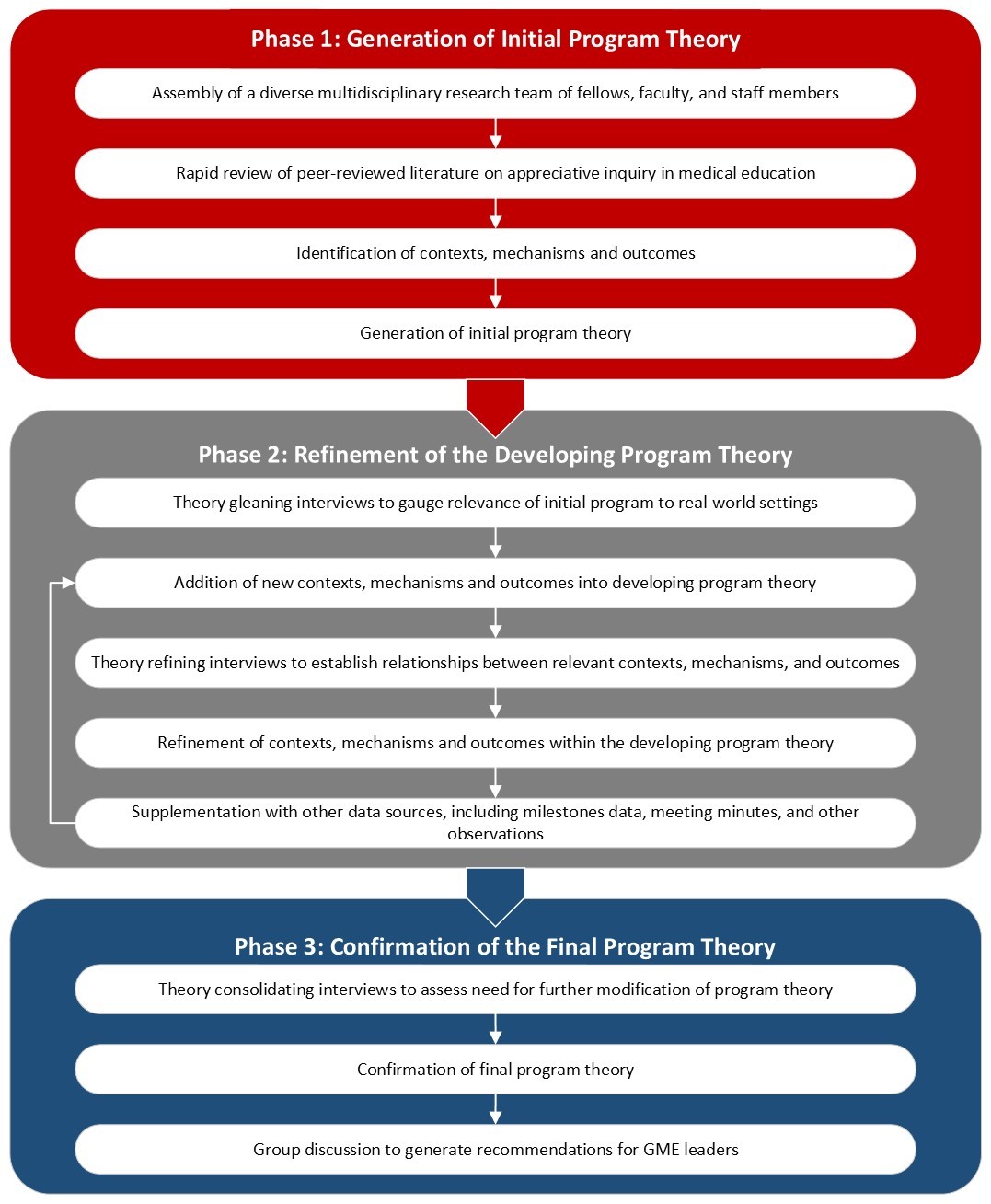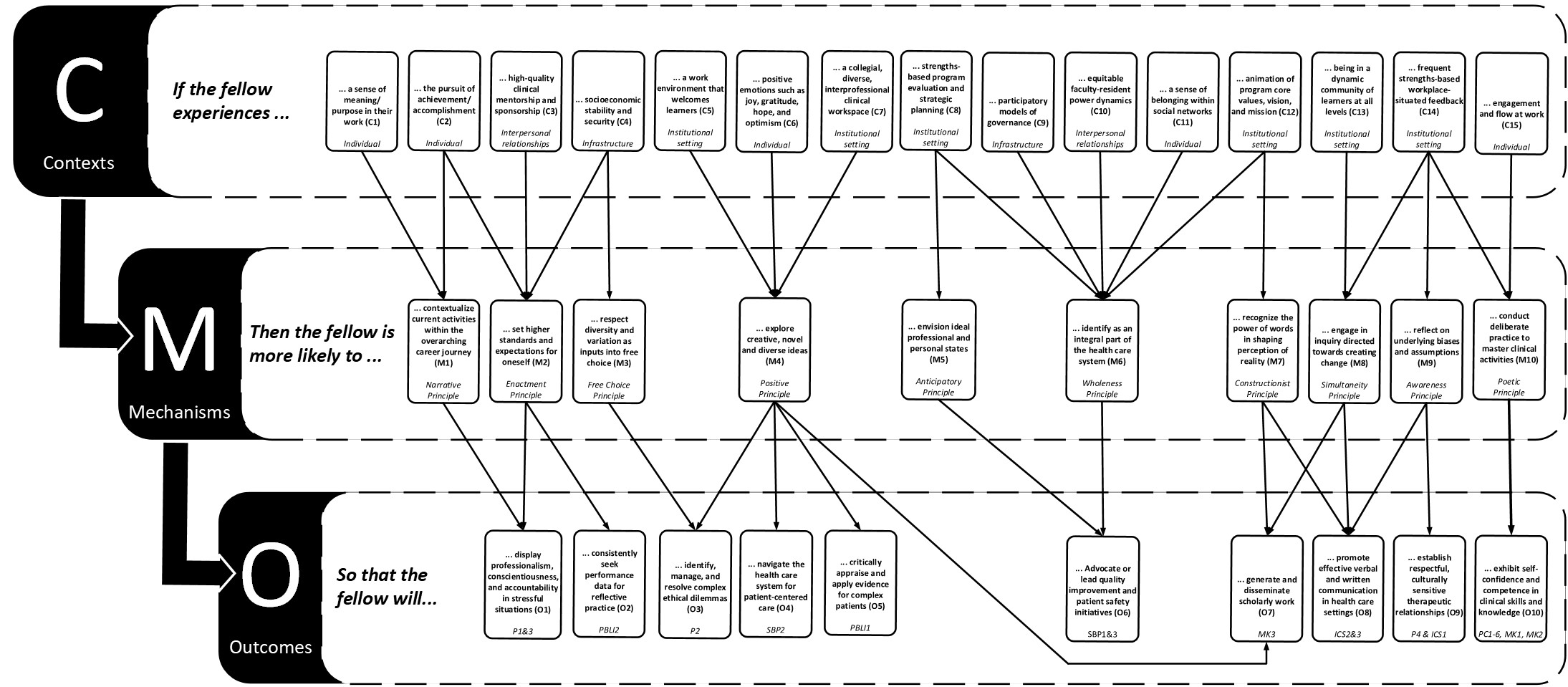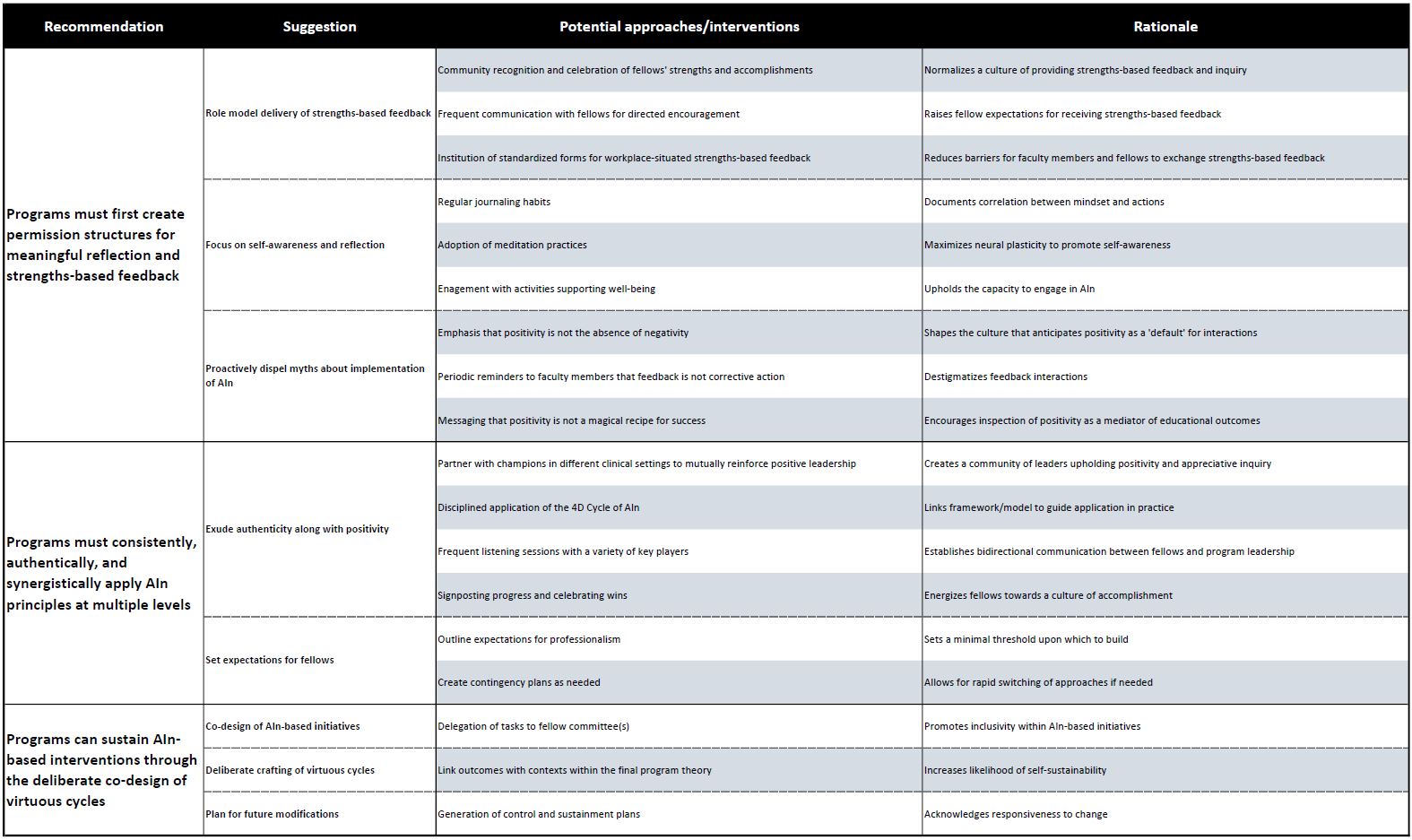Session Information
Session Type: Abstract Session
Session Time: 3:00PM-4:30PM
Background/Purpose: Appreciative Inquiry (AIn) is a strengths-based organizational framework to promote engagement and change. It has shown promise in graduate medical education (GME) settings but how, why, and for whom AIn may drive educational outcomes is underexplored. This realist evaluation examines the causal relationships between contexts, mechanisms, and outcomes at a rheumatology fellowship program in a large tertiary care center that has implemented a set of AIn-based interventions.
These interventions include (1) AIn fellowship weekly huddles, (2) Appreciative advising-based evaluation for the clinical competency committee, (3) Use of the SOAR (Strengths-Opportunities-Aspirations-Results) Framework for annual program evaluation, (4) The SWAG (Scholarly Works Appreciation Group) to encourage scholarly work, and (5) Standardized strengths-based feedback forms for clinical rotations.
Through a rigorous realist evaluation of these interventions that interrogate theory with empiric data, we generate recommendations for leaders in rheumatology fellowship programs on the implementation of AIn-based interventions.
Methods: The realist evaluation was conducted in three phases. In Phase 1, an initial program theory was generated. A scoping review of literature, The Appreciative Inquiry Framework and the Accreditation Committee for Graduate Medical Education (ACGME) Milestones for Rheumatology Fellowship guided selection of contexts, mechanisms and outcomes, respectively. In Phase 2, the initial program theory was iteratively modified through the integration of data from realist interviews and documentary evidence such as minutes from the Program Evaluation Committee and evaluations from the Clinical Competency Committee. This yielded a final program theory. In Phase 3, the final program theory was analyzed to characterize further recommendations, guidance, and suggestions for implementation of appreciative inquiry-based interventions in other rheumatology fellowship programs.
Results: The final program theory identified 15 contexts, 10 mechanisms, and 10 outcomes along with 43 context-mechanism-outcome configurations. The final program theory demonstrates the presence of multiple, overlapping, mutually reinforcing mechanisms that drive educational outcomes. The positive, wholeness, and enactment principles mediate the majority of these configurations, suggesting emphasis should be placed on the values of positivity, inclusivity, and authenticity.
Through analysis of this final program theory, 3 recommendations were generated: (1) programs must first create permission structures for critical self-reflection through strengths-based feedback, (2) programs must consistently and synergistically apply AIn principles at multiple levels, and (3) programs can sustain AIn-based interventions through the deliberate co-design of virtuous cycles.
Conclusion: This realist evaluation has generated a theory on how AIn may be implemented into rheumatology fellowship programs to drive specific educational outcomes. Because of the intricate causal relationships, leaders are well-advised to tailor AIn-based interventions based on the context of their training programs.
To cite this abstract in AMA style:
Feng A, Suneja M, Kumar B. Implementing Strengths-Based, Positive Approaches Within Rheumatology Fellowship Training: A Realist Evaluation of Appreciative Inquiry-Based Interventions [abstract]. Arthritis Rheumatol. 2024; 76 (suppl 9). https://acrabstracts.org/abstract/implementing-strengths-based-positive-approaches-within-rheumatology-fellowship-training-a-realist-evaluation-of-appreciative-inquiry-based-interventions/. Accessed .« Back to ACR Convergence 2024
ACR Meeting Abstracts - https://acrabstracts.org/abstract/implementing-strengths-based-positive-approaches-within-rheumatology-fellowship-training-a-realist-evaluation-of-appreciative-inquiry-based-interventions/



